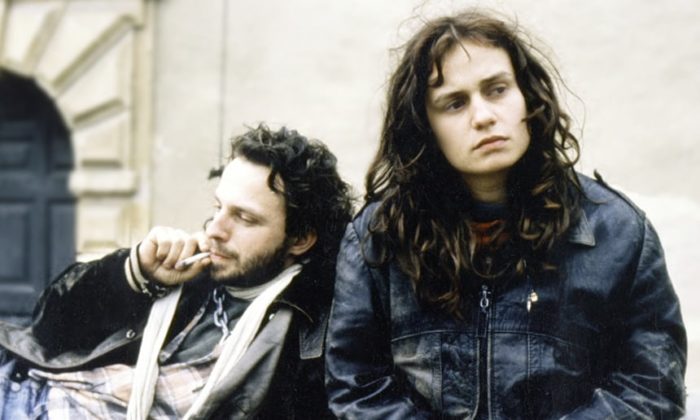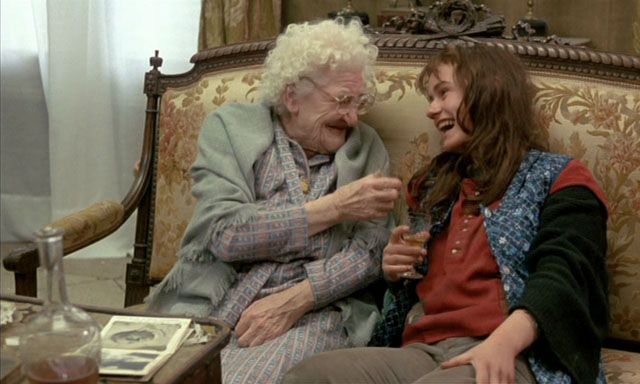
It seems to me that homelessness is a topic that is never handled terribly well in most Hollywood movies. Usually, most vagrants in films are either objects of unenviable pity, or they seem to be these magical, miserly dudes that some hapless, better-looking protagonist forms an unusual bond with. But, like a majority of the films in the Criterion Collection, Vagabond is not a film born out of a Hollywood studio, nor a film that from what I can tell had much of a cross-over release in America. Fortunately, it provides a both empathetic and unromantic depiction of homelessness, while tapping into the idea that even if a person lives on the fringes of society, they still have the power to impact those living firmly within it.
The film opens on the French countryside, where we see the dead body of a young woman covered in frost, as nearby police and villagers begin to take notice of the girl. A few people start recounting to each other that they knew the girl, while the film then flashes back to when the girl Mona (Sandrine Bonnaire) was alive. We see her traveling from town to town and home to home without one to call her own, and in turn, she often ends up camping outside in an orange tent.
Along the way, Mona comes into contact with a revolving door of characters living out in villages and on farms, many of whom try to help her as best they can. However, in nearly every relationship Mona forms, she always seems to get into trouble or just proves too restless to stay in any one place for an extended period of time. Not only do we see Mona’s different travails with a variety of people, but director Agnès Varda also intersperses interviews with the various people that came into contact with Mona. This gives the film a pseudo-documentary slant, despite the fact that Varda’s camera is often far too composed and adventurous to be out of a documentary.
First off, Vagabond is striking just because it is very adventurous formally, but never in a way that feels overtly showy. The character interviews add a touch of realism to the film, but the fact that Varda uses fades in and out of these interviews gives the film an oddly dreamy quality, despite how stark it often is. Then there’s the fact that the film more or less begins like a murder mystery, but then firmly establishes that there isn’t really any mystery to solve in terms of how Mona died. Instead, Vagabond is more concerned in getting to the bottom of what kind of person Mona was, while also trying to make the case that just because she lived a reckless, troubled life, doesn’t mean that her story isn’t worth telling.
With a film like Vagabond, where you’re essentially seeing things through one character’s eyes, but while also having this distance where we don’t quite know where she’s coming from, there has to be a certain allure there. And Sandrine Bonnaire as Mona does that pretty captivatingly. For a young actress, she’s always very compelling to watch, while at the same time, she never quite becomes an entirely likeable character. And that’s part of what makes this film so potent – that everybody’s met these kinds of people in life, where they’re clearly smart and have a unique energy to them, but they just can never seem to get their shit together, which makes them just as frustrating as they are charming.
One thing I wasn’t prepared for when watching Vagabond was how closely it would resemble Faces Places, the excellent documentary that the now 90-year-old Varda released last year. Like that film, Vagabond involves a trek across the French countryside, in which our main character(s) get to know the people living there quite intimately. And in both those films, you see in Varda a kind of curiosity toward human beings that I often find lacking in a lot of filmmakers. Because as Vagabond proves, human beings are filled with so many contradictions and so much to surprise you with, that you could fill an entire film just by zeroing in on one of them.


